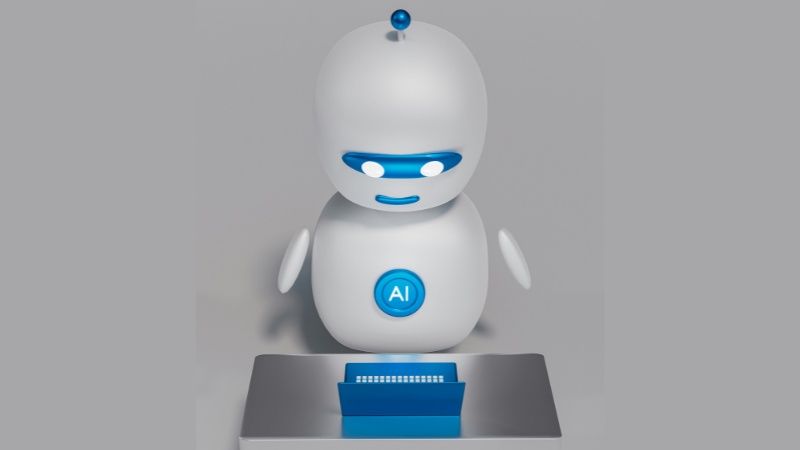
Artificial intelligence (AI) chatbots have transformed modern communication through altering way companies engage with their clientele as well as how people look for information online. Artificial intelligence-powered chatbots are improving the efficiency, customized services, AI Chatbot, and accessibility of interpersonal interactions by offering immediate support to consumers and facilitating participatory citizen chats.
Transforming Customer Service
Service to consumers represents one of the areas where AI chatbots are having the biggest effects. Users used to have to wait for human members to handle their issues. AI chatbots, on the other hand, can provide prompt answers and handle several queries at once without any problems. Businesses can increase consumer happiness while lessening the effort for human beings thanks to this constant interaction. Chatbots can aid with things like assisting consumers with order tracking, assisting employees with difficulties, and responding to frequently asked questions.
AI chatbots differ from conventional robotics in that they may learn and get better over time. Chatbots use deep learning strategies to continuously improve the accuracy and usefulness of their responses by examining previous exchanges. Through the use of natural language processing (NLP), they can comprehend context, react ina human-like way, and manage intricate questions that don’t have straightforward yes-or-no responses.
Customization and User Involvement
AI chatbots’ ability to be customized is a further advantage. They are able to collect and evaluate information from users in order to offer personalized assistance, notifications, and recommendations. To improve the buying experience, a shopping website chatbot, for example, may recall what a customer likes and recommend goods that would fit them. AI chatbots are employed in medical facilities to track the status of patients, give health advice, and tell people to take their medications. This adds some humanity in an incredibly controlled environment.
Furthermore, chatbots are increasing user involvement in fields including education, entertainment, and mental health. In the classroom, chatbots are utilized to assist with homework, preparation for tests, and on-demand tutoring. Entertainment-focused chatbots enhance one’s comprehension of the digital environment by offering captivating encounters in simulated universes or video games.
Obstacles and the Prospects
Even with their improvements, AI chatbots still have problems. Dealing with intricate or highly detailed conversations and overcoming user mistrust when the chatbot’s responses don’t seem human enough are the most frequent limitations. However, chatbots will probably grow even more intelligent and complex as AI technology advances.
AI chatbots should become more pervasive in daily life in the future, further obfuscating the distinction between human and machine contact, boosting communication, and increasing productivity across sectors.
AI Roleplay: The Prospects for Engaging and Interactive Storytelling
By fusing the inventiveness of human imagination with the reactivity of AI systems, artificial intelligence (AI) roleplay has become a captivating and immersive type of interactive storytelling. This technology offers countless opportunities for self-expression, education, and enjoyment by enabling users to interact with virtual characters, locations, and circumstances in a way that seems dynamic and intimate.
Describe airoleplay
AI roleplay is essentially real-time user interaction with AI-driven actors or bots that simulate actions, speech, and situations which vary based on user input. AI systems can understand and respond to complex inputs in a way that closely mimics real-world human interaction thanks to machine learning and natural language processing (NLP).
These artificial intelligence models might be role models, loving partners, helpful teachers in video games, or even adversaries in virtual environments.Because users can modify their interactions to explore various perspectives, emotions, and outcomes, each session is unique and the experience is extremely adjustable.
Extending the World of Storytelling AIroleplay is transforming the way stories are told and experienced. While traditional storytelling is linear, with a predetermined beginning, middle, and end, AI roleplay enables dynamic, branching narratives where the user’s choices determine the story’s course, immersing the user deeply in the story and turning them into a prominent figure rather than a passive observer.
This type of interaction is especially common in games that are available and virtual worlds, where AI-driven characters can adjust to the player’s preferences, style, and decisions. Just picture playing a game where each character you encounter has its own personality, memory, and agenda, creating unique experiences every time you play. AI roleplay can make this possible, improving the gaming experience.
Outside of Entertainment: Practical Uses
Although AI roleplay is an exciting new trend in entertainment, its uses are not limited to games and fiction. AI roleplay can be used in education to create immersive learning experiences, including reenacting historical events or using virtual characters that interact with students in real time to practice language skills. AI roleplay can be used as a therapeutic aid in mental health, allowing users to practice social interactions in a secure and regulated setting, explore emotions, and face anxieties.
Additionally, AI roleplay has the potential to completely transform customer service by giving companies the capacity to develop interactive, branded AI characters that interact with clients in a customized manner, responding to inquiries and making suggestions based on personal preferences.
The Prospects of AI Roleplaying
AI roleplay‘s potential will only increase as it develops more. More emotional intelligence could be developed by advanced AI systems, enabling virtual characters to build more intricate interactions with humans. AI roleplay’s future depends on developing more complex, realistic, and emotionally charged scenarios that may elicit genuine human responses.